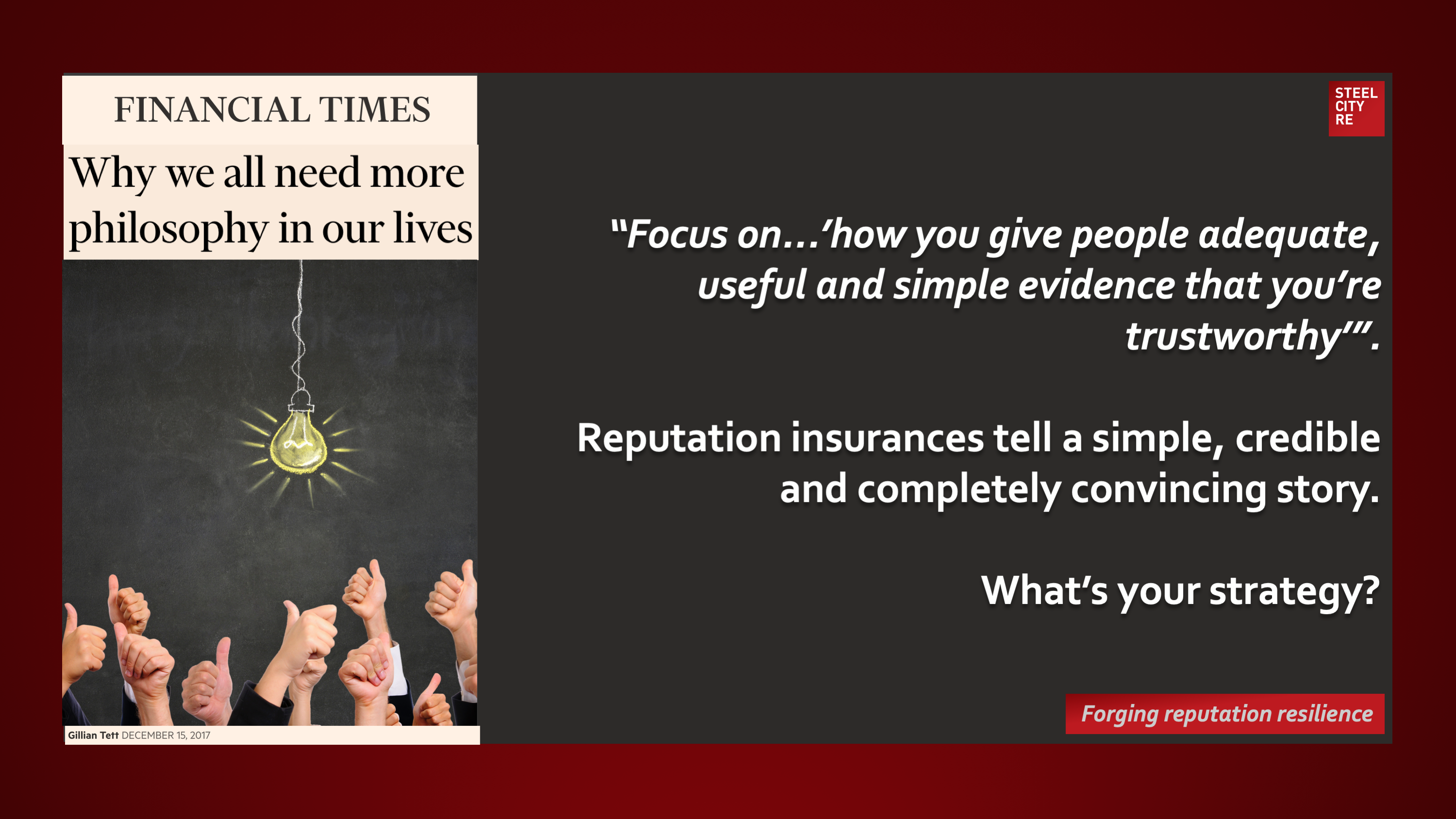“O’Neill argues that “we need to think much less about trust, let alone about attitudes of trust detected or mis-detected by opinion polls” and focus “much more on being trustworthy, and how you give people adequate, useful and simple evidence that you’re trustworthy”…This requires better transparency. Another, less discussed, route to building trust is for institutions and individuals to make themselves vulnerable. … But there is another key point: O’Neill believes we need to concentrate on the concepts of ethics and duty….“You have this compliance mentality gone mad, and it doesn’t work.”
Financial Times
February 20, 2019
“Focus on…’how you give people adequate, useful and simple evidence that you’re trustworthy’”
Reputations are valuable strategic intangible assets. Threats to these assets⏤ enterprise reputation risks, often mislabeled “brand risks” ⏤ need to be managed, and management needs to be overseen through reputation risk governance lest reputational damage or reputational harm result in long-tailed go-forward losses in economic value and/or political power.
Because these intangible risks arise from the interplay of stakeholder expectation, experiences, and media amplification, parametric insurances for intangible asset risks, for reputational value, for reputational harm, and for reputation assurance help mitigate risk by telling a simple, convincing and completely credible story of quality reputation governance to stakeholders. This story telling effect is the expressive power of insurance complementing insurance’s better known instrumental power of indemnification.
Risk management, risk financing in insurance captives, and risk transfer through reputation insurances comprise the constituent elements of a comprehensive solution.
What’s your strategy?

